Culture and belief-Coffee ritual in Ethiopia
All Ethiopians are proud of their coffee.
Yes, coffee is both a belief and a culture for them in Ethiopia. You can refuse to attend the wedding, but you must not refuse to attend the coffee ceremony, and being invited to the coffee ceremony is recognized and accepted by the local people.
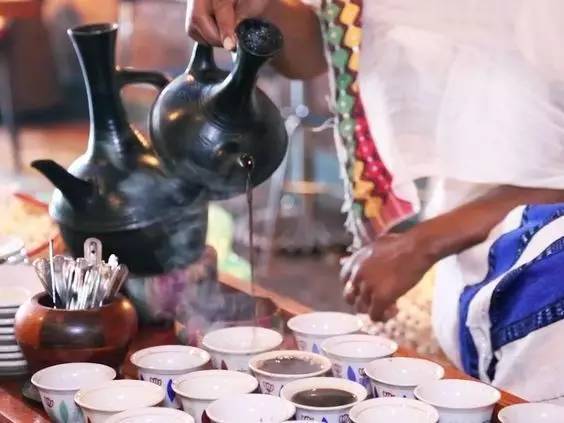
Ethiopia is a country with changeable landforms and various nationalities, and its coffee beans grow in different regions. The only thing that can be revered by more than 80 ethnic groups is coffee. Only about 40% of Ethiopian coffee is exported, and the rest is used for various forms of rituals. For example, at weddings, people make porridge of coffee beans with coffee berries and butter and salt; coffee with honey and various herbs to ward off bad luck; and coffee leaves and coffee to entertain guests. But the most important thing is the coffee drinking ceremony.
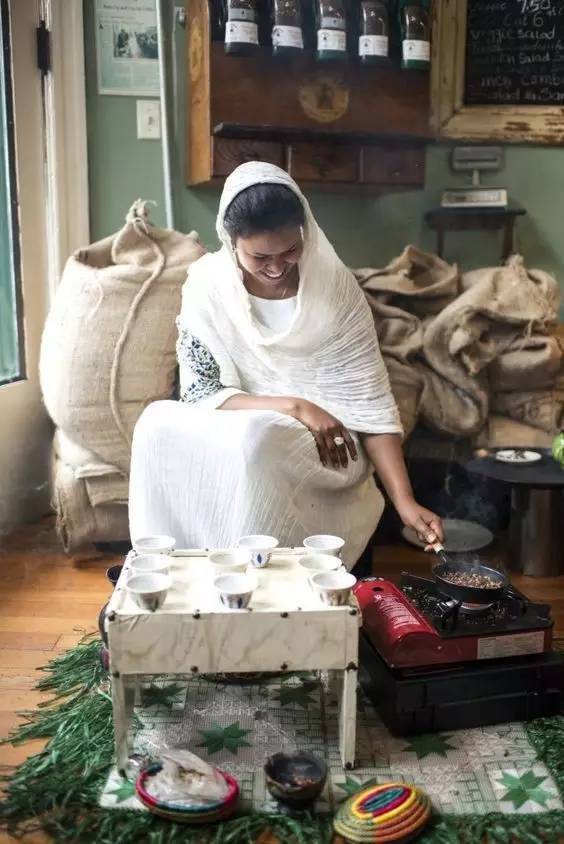
The Buna ceremony in Ethiopia is a long process, with an average of about 1.5 hours. The ceremony, which takes place every day, aims to come to the conclusion that it may be a marriage proposal or a mediation of family conflict.
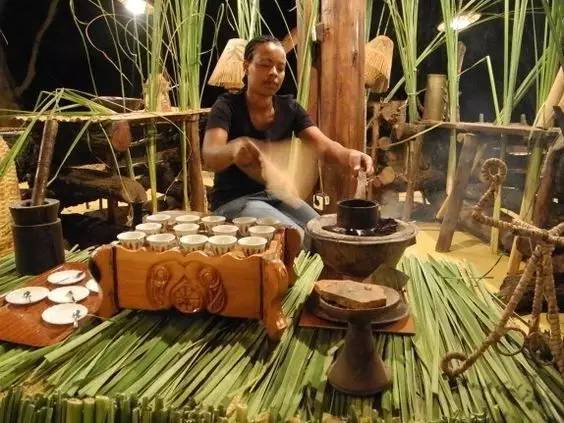
The first is roasted coffee beans. When the coffee beans are roasted, the women (often dressed up) put the coffee beans into the pot and let everyone smell the coffee beans. And then I started making coffee.
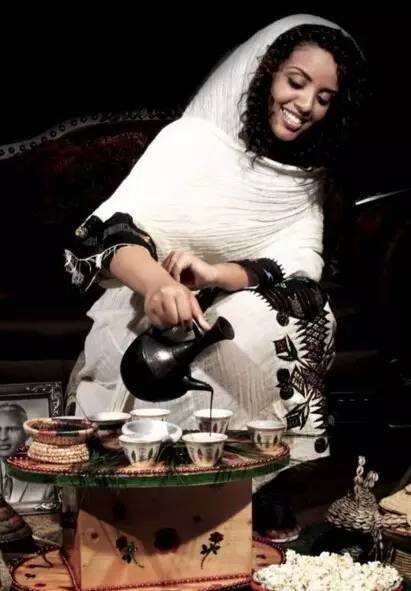
During the ceremony:
The first cup, called Abol, is the most important and the worst. If you are resolving a conflict, you must bravely drink this drink and state your point of view.
The second cup is called Tona, boiled again with water, and the taste is still strong. If the other person accepts his or her own point of view, he will drink it up. If the other party doesn't drink, there won't be a third drink.
The third cup is called Baraka, when the matter is settled and the conclusion is satisfactory, it symbolizes joy, and often the younger generation will be invited to this cup.
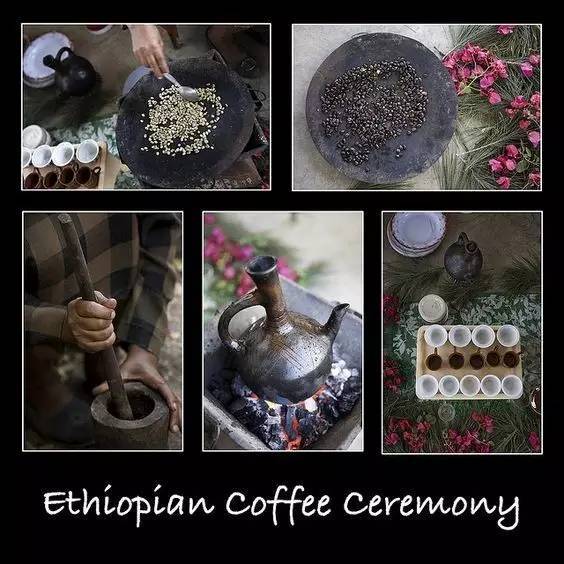
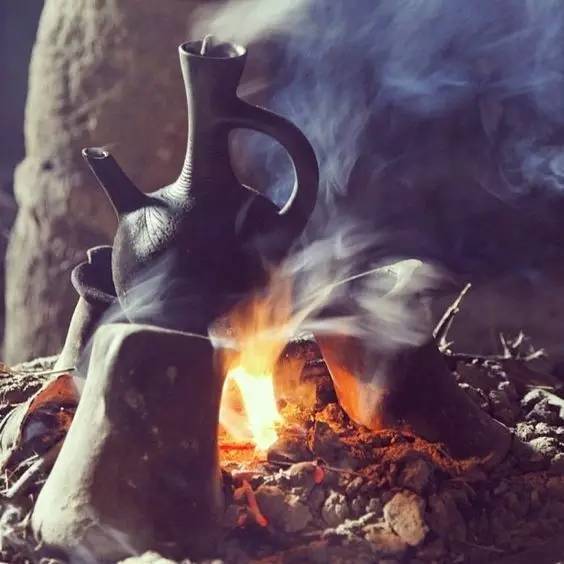
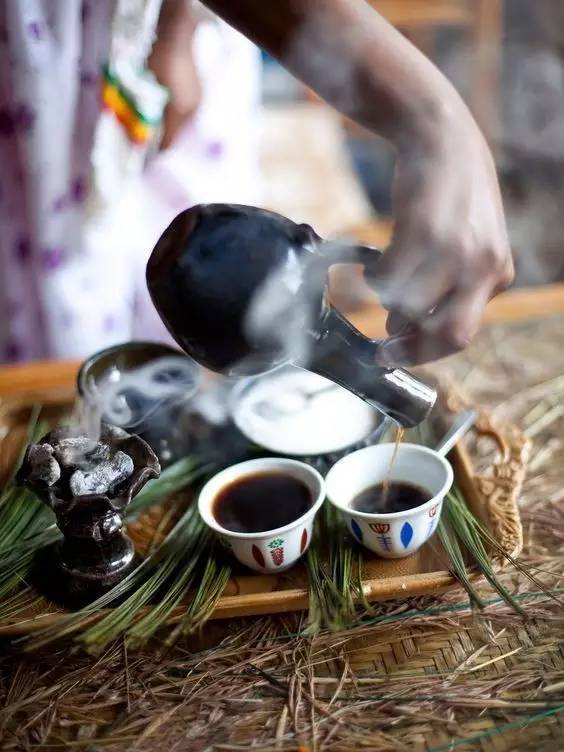
Original English website: http://www.saveur.com/ethiopian-coffee-ceremony-bun na-cafe
Copyright Information:
The above articles are compiled by Coffee Salon and cannot be reproduced without permission.
Important Notice :
前街咖啡 FrontStreet Coffee has moved to new addredd:
FrontStreet Coffee Address: 315,Donghua East Road,GuangZhou
Tel:020 38364473
- Prev
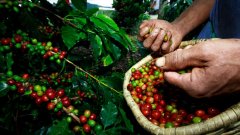
Coffee Development History of Indonesia, the third largest Coffee exporter in the World
Indonesia's coffee business originated in 1696 and took place during the Dutch colonization of Indonesia from a spice farm in Batavia to a coffee producing area, making Java and Sumatra the third largest coffee exporter in the world today. From traditional coffee to special espresso coffee has been recognized by Indonesia as a cash crop for more than 300 years.
- Next
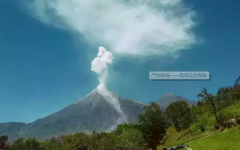
An amazing upstart-the coffee culture of Guatemala
Coffee from this small Central American country has stood out in recent years: harmonious, sweet, soft and fragrant, tasting it as if to explore its roots (Mayan culture). Pure Coffee blogger Bill Walsh Hi, Coffee from the place of origin meets you again. This issue takes us into the mysterious Mayan residence and one of the ancient Indian Mayan cultural centers.
Related
- How did the Salvadoran coffee industry develop in Central America?
- What exactly does the golden cup extraction of coffee mean?
- The Origin of Coffee flower
- [2023 Starbucks World Earth Day] there are more meaningful things besides free Starbucks coffee!
- What kind of coffee is there in Spain? 9 Flavors of Spanish Coffee
- Aromatic African coffee| Kenya's coffee culture and historical production area
- Liberica Coffee Bean knowledge: the characteristics of Liberian Coffee beans of the three original species of Coffee beans
- The origin and formula of Spanish latte introduces the taste characteristics of Bombon coffee in Valencia, Spain.
- How to adjust the solution of over-extracted coffee
- What is the tasting period of coffee beans? What is the period of coffee and beans? How should coffee wake up and raise beans?

